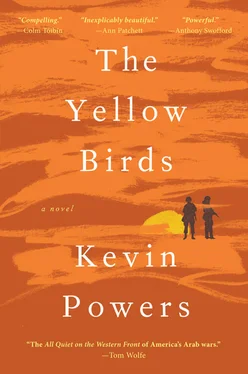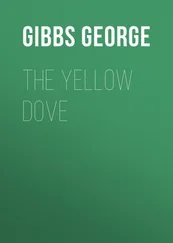All of that was a long time ago. My loss is fading too and I don’t know what it is becoming. Part of it is getting older, I guess, knowing Murph is not. I can feel him getting farther away in time, and I know there are days ahead when I won’t think of him or Sterling or the war. For now, though, they’ve let me out, and I’ve allowed myself the gift of a quiet quarantine in a cabin in the hills below the Blue Ridge. Sometimes I will smell the Tigris, unchanged forever in my memory, flowing just as it flowed that day, but it is soon replaced by the cold clear air coming down the mountainside between the mezzanines of pines rolling ever upward.
I do feel ordinary again. I guess every day becomes habitual. The details of the world in which we live are always secondary to the fact that we must live in them. So I’m ordinary, except for a few peculiarities that I will probably always carry with me. I don’t want to look out over the earth as it unfurls itself toward the horizon. I don’t want desert. I don’t want prairie and I don’t want plains. I don’t want anything unbroken. I’d rather look out at mountains. Or to have my view obstructed by a group of trees. Any kind would do: pine, oak, poplar, whatever. Something manageable and finite that could break up and fix the earth into parcels small enough that they could be contended with.
When Murph’s mom came to visit she brought me a map of Iraq. I thought it was an odd gesture when I first began to look at it, folding and unfolding it in my cell, struggling with the arrangement of the arbitrary lines that it would fold itself along when I went to put it up at night. Within the map there was a section magnifying Al Tafar and its surrounding landscapes. It stopped being funny after a while. The grid seemed so foreign and imprecise. Just a place scaled out of existence on a map.
The first day in my new cabin I unpacked and laid out a few things on the old olive drab cot I’d bought from the army-navy store outside the base that housed the prison. I didn’t have much: some clothes, the map that Mrs. Murphy had given me. I put some tape on the corners and flattened it as best I could against the wall, but the lines of the folds remained. I remember rubbing my finger along one of the creases that ran straight along a very small section of the Tigris. It was the part of the river that ran through Al Tafar. I dug in my bag and found one of my medals and I stuck it in as near as I could figure to the place where we had left him. That map, like every other, would soon be out of date, if it was not already. What it had been indexed to was only an idea of a place, an abstraction formed from memories too brief and passing to account for the small effects of time: wind scouring and lifting the dust of the plains of Nineveh in immeasurable increments, the tuck of a river farther into its bend, hour by hour, year by year; the map would become less and less a picture of a fact and more a poor translation of memory in two dimensions. It reminded me of talking, how what is said is never quite what was thought, and what is heard is never quite what was said. It wasn’t much in the way of comfort, but everything has a little failure in it, and we still make do somehow.
I went outside and walked around a bit. It was quiet. I dozed off under the bright sun in the mountains. I heard the rustling of a cloth as it was taken off some small monument in some small corner of America. I heard the soft rustle of other voices, too.
And then I saw Murph as I’d seen him last, but beautiful. Somehow his wounds were softened, his disfigurement transformed into a statement on permanence. He passed out of Al Tafar on the slow current of the Tigris, his body livid, then made clean by the wide-eyed creatures that swam indifferently below the river’s placid surface. He held whole even as the spring thaw from the Zagros pushed him farther downstream, passing through the cradle of the world as it greened, then turned to dust. A pair of soldiers watched his passage while resting in the reeds and bulrushes, one calling out to the battered body while the other slept, not knowing Murph was ever one of them, thinking that he must be the victim of another war of which they likely did not feel they were a part, and the voice rose softly through the heat, and it sounded like singing when he said, “Peace out, motherfucker,” loud enough to wake his friend, but the body that he called out to would have been, by then, little more than skeleton, Murph’s injuries erased to the pure white of bone. He reached the Shatt al Arab in summer, where a fisherman who saw him flood into the broad waters where the Tigris and Euphrates marry unknowingly caressed his remains with the pole that pushed his small flat-keeled boat along the shallow waters of the marshes. And I saw his body finally break apart near the mouth of the gulf, where the shadows of the date palms fell in long, dark curtains on his bones, now scattered, and swept them out to sea, toward a line of waves that break forever as he enters them.
This book was primarily written alone. The process of turning those private efforts into what you have just read, however, required many people. Thanks are due, above all, to my mother and father for their endless patience. I’ve also had extraordinary teachers throughout my life, and many thanks are owed to Patty Strong, Jonathan Rice, Gary Sange, Bryant Mangum, Dean Young and Brigit Pegeen Kelly; your dedication, intelligence and kindness amaze me. I greatly appreciate the opportunity given to me by the Michener Center for Writers, and I’d particularly like to thank Jim Magnuson, Michael Adams and Marla Aiken for their guidance and encouragement. For reading drafts of this novel, and for their friendship, I am indebted to Philipp Meyer, Brian Van Reet, Shamala Gallagher, Virginia Reeves, Ben Roberts, Fiona McFarlane, Caleb Klaces and Matt Greene. Thanks to everyone at Little, Brown, especially Michael Pietsch, Vanessa Kehren, Nicole Dewey and Amanda Tobier. Thanks also to Drummond Moir and Rosie Gailer at Sceptre. I could not imagine a better group of people to entrust my work to, both at home and abroad. I am also grateful to everyone at Rogers, Coleridge and White for their tireless efforts in getting this book out into the world, especially to Stephen Edwards and Laurence Laluyaux. Lastly, to Peter Straus, it is a privilege. There is nothing else to be said. A complete list of those people to whom I owe a debt of gratitude would be impossible. For this fact alone, I consider myself very lucky.
Kevin Powers was born and raised in Richmond, Virginia, graduated from Virginia Commonwealth University, and holds an MFA from the University of Texas at Austin, where he was a Michener Fellow in Poetry. He served in the U.S. Army in 2004 and 2005 in Iraq, where he was deployed as a machine gunner in Mosul and Tal Afar. This is his first novel.












